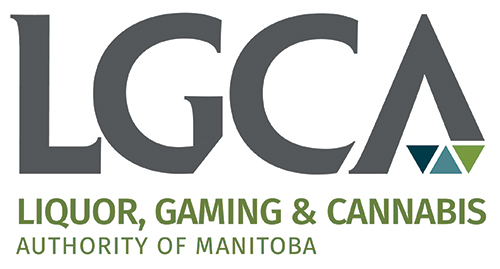The results of the 2016 Manitoba Gaming Market Assessment reveal that Manitoba gaming revenue has increased by $133 million since 2005, and that the provincial market now is oversupplied throughout the province.
2015
Changes to the Criminal Code (Canada) in 2014 allowed provinces to begin authorizing charities to operate raffles, including 50/50 draws, “on or through a computer”. In 2015, the LGA launched licence terms and conditions and technical standards to ensure fairness and integrity. As a result, Manitoba’s charitable and religious organizations can now apply to sell and issue tickets online, conduct online financial …
2014
Manitoba’s new Liquor and Gaming Control Act becomes law. The new legislation and regulations balance consumer choice and business flexibility within a framework of public safety and social responsibility. The majority of changes affect Manitoba liquor laws that were created in 1956. Minimal revisions were made in gaming, and mostly included language clarifications and updating descriptions of gaming events and activities to make them relevant to …
2013
Public consultations summary for a new liquor and gaming regulatory framework is released.
2012
Regulation of liquor and gaming to merge into one authority. The April 17, 2012 Manitoba Budget announces that liquor regulation will be controlled by the same authority regulating gaming. The Manitoba government expects the new model to reduce red tape for Manitoba businesses by bringing inspections and other regulatory services into a one-stop shop. The MLCC’s operational activities are being merged with the …
2011
Spirit Sands Casino moves forward. The Gaming Agreement is signed between the Manitoba government, Spirit Sands Casino Resort Limited Partnership and MLC. The casino will be owned equally by all 64 First Nations, which will benefit equally from the casino profits. Opening is anticipated for 2012. Canada moves toward single event sports betting. Parliament hears the first reading of a federal government …
2010
Honesty and integrity standards for retailers are enshrined in legislation. Amendments to The Gaming Control Act bring third-party, independent oversight to lottery retail operations and confirm that lottery ticket retailers are expected to adhere to the same standards of honesty and integrity as those applied to other gaming industry employees, equipment, suppliers and games. These measures complement player-focused education initiatives and enhanced ticket-checking …
2009
Negotiations are discontinued with the sponsors of the First Nations casino site recommended in 2008. Negotiations reach an impasse over the longstanding position of the AMC and the Manitoba government that any new casino development would be owned equally by all First Nations, with revenue shared equally among them. Plans move forward for a different site. A Memorandum of Understanding is signed …
2008
Controversy arises over the proposed southwestern region casino. Brandon voters reject casino development in their community. As a result, the AMC and the Manitoba government establish the Southwestern Region Casino Site Selection Committee to oversee a site recommendation process, including a call for Expressions of Interest from Manitoba First Nations, the review and assessment of submissions and recommendations. The Committee recommends …
2007
Texas Hold’em tournaments begin. Manitoba charities can now apply for licences to hold these fundraising events. The Manitoba First Nation Gaming Market Study recommends establishment of a First Nations-owned casino in the southwestern region/City of Brandon market area. Both the AMC and the Manitoba government agree to implement this recommendation, and begin to seek the optimum site.
